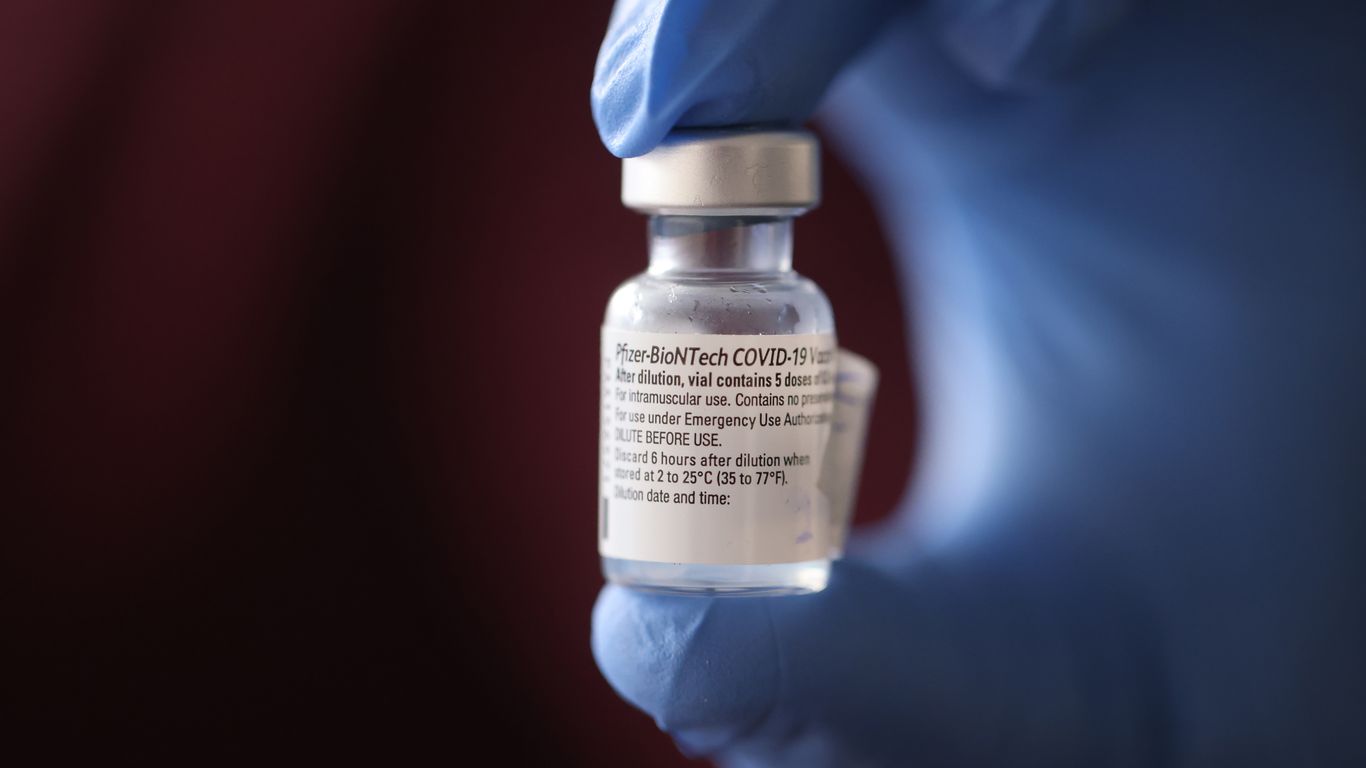Pfizer said in a statement that “there is no data” to show that a single dose of its coronavirus vaccine will provide protection against infection after 21 days.
Why it matters: The United Kingdom announced on Wednesday that it would change its vaccination strategy “to give the first dose to as many people in high-risk groups as possible, rather than providing the two necessary doses in the shortest possible time.” Some provinces in Canada are doing the same.
- Pfizer confirmed in response that while some protection appears to begin as early as 12 days after the first dose, two doses of the vaccine – separated by three weeks – is the only regimen that has proven to be 95% effective in Phase 3 tests.
- “Everyone will still receive their second dose, and that will be 12 weeks after the first,” the UK government added in a statement. “The second dose completes the course and is important for long-term protection.”
The big picture: Pfizer’s warning comes as many countries, including the United States, debate how to quickly deploy vaccines in the most effective way possible. The U.S. is on track to drop far below its goal of vaccinating 20 million people by the end of 2020, with just 3 million single doses administered on Wednesday night.
